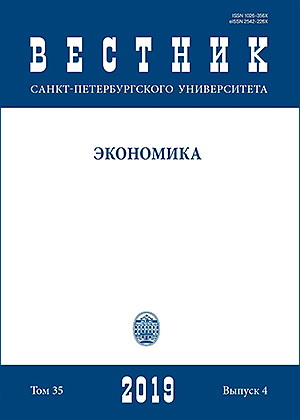Kyrgyz Republic and Structural Reforms: Twenty Years of WTO Membership
DOI:
https://doi.org/10.21638/spbu05.2019.402Abstract
The Kyrgyz Republic joined the WTO twenty years ago with the expectation that structural reforms required for obtaining membership and the application of trade rules would facilitate its transformation from a centrally planned to a market economy and ease its integration into the WTO multilateral trading system. It completed its accession process in record time, liberalized its economy considerably, reduced tariffs significantly, and made substantial commitments in a broad range of services sectors. It adopted legislation in all areas required for WTO membership and created competitive market access conditions for goods and services. Looking back at two decades of WTO membership, there is evidenced that the reform process is paying off. Trade has expanded significantly and new markets have been tapped for imports and exports, thus decreasing its dependency on traditional trading partners. As a result, the economy has grown rapidly. At the same time, many challenges remain to further diversify the economy, take better advantage of opportunities offered in the services trade, attract foreign direct investment, and fully implement all WTO related laws, rules, and regulations. The reform process continues to be essential to Kyrgyzstan’s economic policies to deepen and solidify its integration into the world trading system.
Keywords:
trade policy, negotiations, structural adjustment, post-accession, policy coherence
Downloads
References
References in Latin Alphabet
World Bank (2001) World Bank Development Report 2002: Building Institutions for Markets: Washington. 263 p.
Downloads
Published
How to Cite
Issue
Section
License
Articles of the St Petersburg University Journal of Economic Studies are open access distributed under the terms of the License Agreement with Saint Petersburg State University, which permits to the authors unrestricted distribution and self-archiving free of charge.







